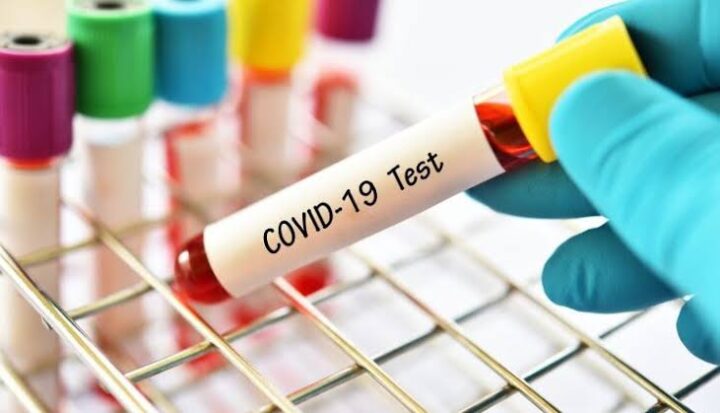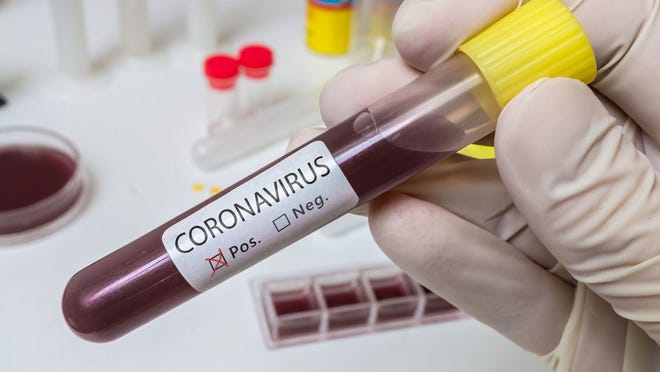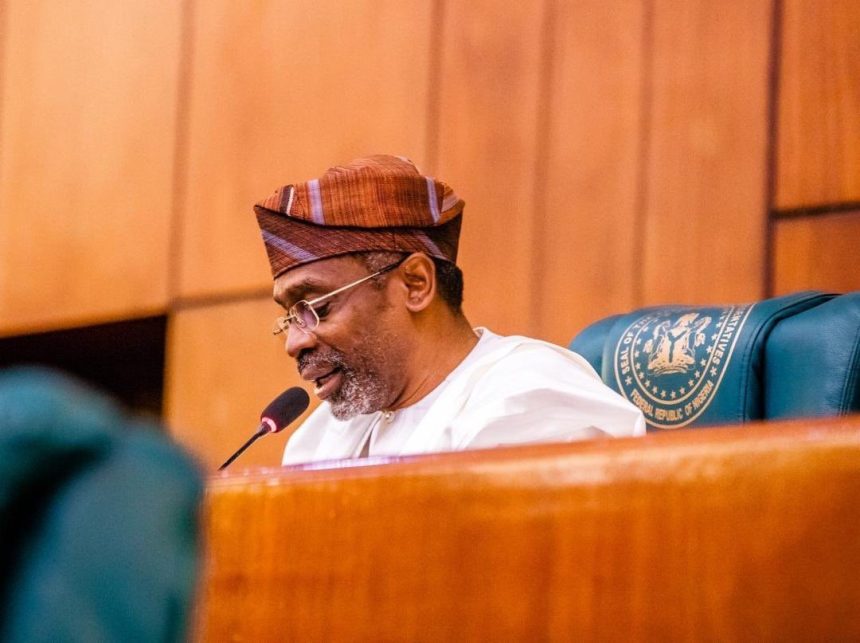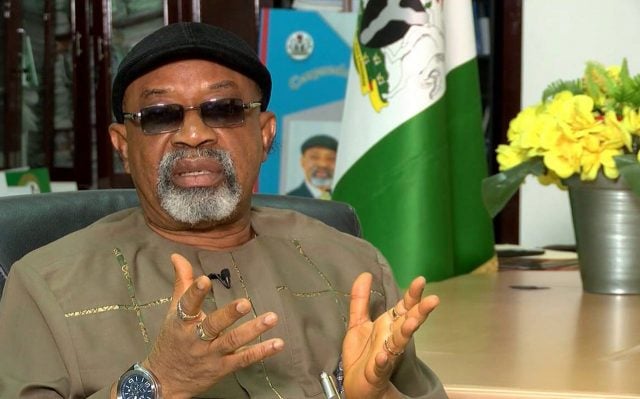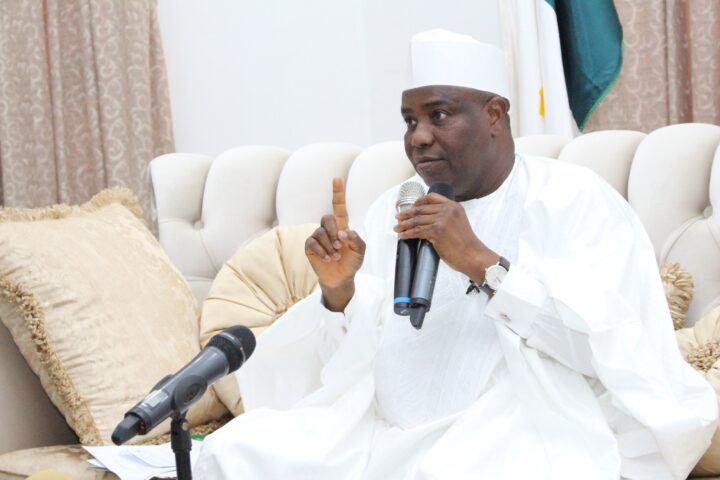BY STEPHANIE ADAMS
Nguveren Terseer had survived a fatal attack on her Logo community in Benue state, worst affected by seemingly intractable herder-farmer conflict. Forcibly uprooted from Logo, the 27-year-old is now at an internally displaced persons’ (IDP) camp in Makurdi, the state capital, where she has continued to soldier on, providing sustenance for herself and two children.
In January 2018, over 70 people, mostly male farmers and one of them, Terseer’s husband, were killed in Logo in an attack that was suspected to have been carried out by herdsmen exploring the middle belt for pasture to graze cows. The herdsmen, originating from Nigeria’s semi-arid far north, seasonally migrate southwards, bringing them into violent conflict with farming communities such as Logo, in the context of intense competition for rapidly declining resources as population expands.
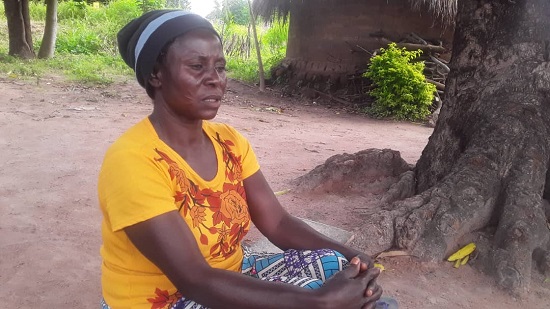
Advertisement
‘THEY WERE NOT INTERESTED IN THE LIVES OF WOMEN’
The attack was just one of several and it precipitated displacement of thousands of people, including women like Terseer, who now push towards livelihood recovery and have emerged as breadwinners.
She was lucky to be spared the herdsman’s bullet. She was on the farm with her husband when the armed men struck. They were not interested in the lives of women; they were after men, according to Terseer.
Advertisement
“We were on the farm when they came. They killed my husband,” she said. When asked how she escaped, the mother of two replied: “They said they don’t want to kill a woman.”
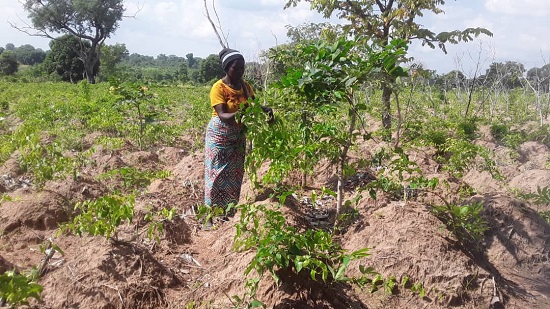
She said they were on the farm outside Chembe, a Benue community on the border of Nasarawa and Taraba states, when the unfortunate incident happened. That incident forced her to relocate to Makurdi, where she is making ends meet through sales of local gin and cigarettes. She is yet to recover from the trauma and horror of watching helplessly as her husband was shot multiple times and subsequently butchered. Terseer’s story is that of many others.
‘I WATCHED MY HUSBAND SHOT, BUTCHERED’
At a farm, in the Benue north- eastern LGA of Logo, Mseer Nyamve was tending to her yams. The farm showed prospects of good yield, even though she was yet to fertilise it. It was a yam farm of about 80 lines of 65 heaps each.
Advertisement
Nyamve narrated how armed men stormed Chembe on January 30, 2015, killing 17 persons, including her husband.
“We got wind that herdsmen were coming to attack so we ran and took refuge in our farms. At dawn, while on the farm, we heard gunshots and began to run again. Unfortunately, my husband could not move fast because he had problems with his legs. They followed him, shot him twice from behind before he was butchered. I stood there watching them and proceeded, after the act,” she said. “When they shot him, I collapsed and began to cry, although they intermittently looked at me, they did not touch me.”
Left with seven children, she depends on farming for survival.
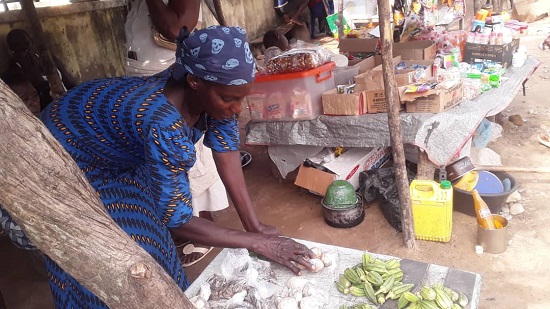
The conflict mainly affects vulnerable groups such as women and children who constitute the majority of the displaced population in Nigeria.
Advertisement
According to a United Nations High Commission for Refugees (UNHCR) supplementary report done in 2017, an increasing number of unconventional households is headed by women, children and older people. Out of the 17,700 vulnerable households profiled by UNHCR’s vulnerability screening, 18 percent (6,800 families) have unaccompanied or separated children, including 14 percent (5,400 households) with orphans due to the conflict; 15 percent (4,900 families) have children hawking or begging; and 3 percent (1,100 households) of displaced households reported their child to be missing.
Advertisement
These are some of the heart-wrenching and survival stories of the Benue woman, widowed because herdsmen are on a rampage in the state. They have no option of returning to their farms, either in their original homes or look elsewhere, they can find land and cultivate crops as a means of livelihood.
HOW IT STARTED
Advertisement
Several accounts traced the beginning of these attacks back to 2015 through 2018. The land grazing and settlement disagreement between herders and farmers escalated into large-scale attacks in January 2018.
On January 1, 2018, armed men invaded two Benue farming communities in Guma and Logo local government areas. The locals were deep in their sleep, following a long day of merriment due to the New Year day’s festivities. The armed men left at least 73 persons dead, with scores injured.
Advertisement
The attack of the 2018 New Year day incident, as events would unfold, was but the beginning of heightened attacks, which has left thousands of IDPs in camps across Nigeria’s north-central state.
‘BLOODY’ FARMING IN BENUE COMMUNITIES
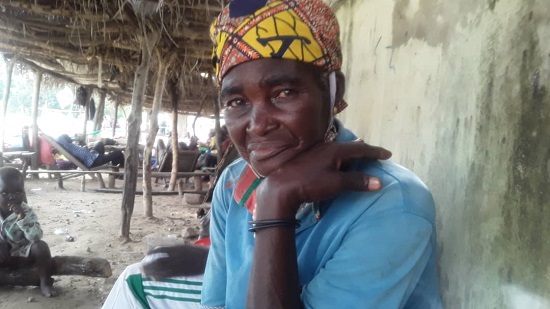
At the peak of the attacks, the State Emergency Management Agency (SEMA), Makurdi, announced that it registered 483,699 IDPs. The most vulnerable among this population are women and children. Some of these women have become breadwinners of their families and are widowed because herdsmen have cut off the shoulders on which they leaned.
The craze for grazing in Benue, in the face of crop production, has seen the local farmers killed in dehumanising circumstances with cases of rape, ripping of pregnant women’s wombs, while hectares of fields, storage crops and properties are destroyed.
Since 2018, most children in the troubled areas have not seen the four walls of a classroom, except the emergency camp education arranged by the Benue state government and international bodies. This is the second year.
From 2009 to 2018, the number of IDPs in Africa grew from 6.4 million to 17.7 million, according to UNHCR. More than 2.5 million of them are in Nigeria. The UNHCR, Doctors without Borders, the Red Cross and other humanitarian agencies, both domestic and international, have been in the camps in Benue, while also collaborating with the government to provide needed services.
“I’ll appreciate it If someone can help to train one of my children in school; I will be happy. I will also be happy if I am helped to construct a house to sleep in,” Yahuan Nyityô of Chembe in Logo, told Premium Times.
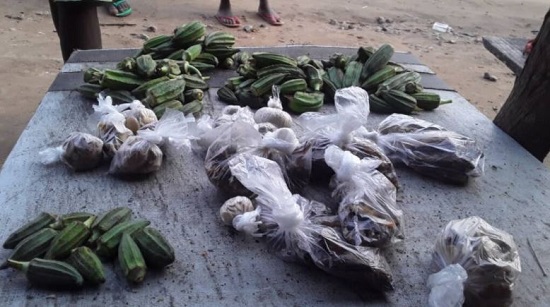
She sat under a mango tree, in the thatched house compound her husband left her with. None of her four kids has gone past high school. Their preoccupation is farming, which they are now only working tooth and nail to bring back to the state it was, before the enemy struck.
This is the fifth year, and due to the clearing mission by troops of Operation Whirl Stroke (OPWS), a military operation code, Nyityô and others in the community returned to the farm five years after the attack.
Nyityô’s family cultivates yam and groundnut, two of the dominant crops in the area. The infamous January 2015 attack on Chembe has left a permanent scar on her mind. The harsh realities of life, in the face of natural elements, principal of which is rain at the backdrop of a place to lay her head with the children, are too difficult to bear as she keeps looking up for help to cushion the effects of man’s inhumanity to man.
Although the traumatic experience of seeing a loved one killed by the enemy is still with many, some widows have taken up responsibilities and are engaged in things that would enable them to take care of their families.
Several women who shared their stories alleged that the herdsmen usually trigger the confrontation by grazing cattle on their farmlands and when confronted, the herdsmen will respond with violence killing most men and male children.
The July 10, 2020 attack on Chembe, which left 10 persons dead, has reminded Msurshima Ayem of the demise of her husband. Left with seven children, it is Ayem’s responsibility to cater to the upkeep of the children. Their lives now depend on how well they cultivate yam and groundnut on the farm.
However, Gaurus Gilolo, a member of the Miyetti Allah Cattle Breeders Association (MACBAN) denied these attacks were carried out by herdsmen.
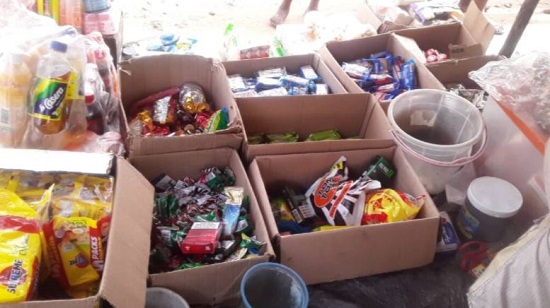
“There was no Fulani in Guma and Logo local government area in 2018. The government made a law in 2017 and herdsmen were chased away and over 26,000 cattle killed by livestock guards,” he told PREMIUM TIMES.
Gilolo added that the herdsmen were always killed and attacked, but no one is saying anything about it because they are mostly in the bush. On the other hand, Solomon Ukeyima, reverend father in the Makurdi Catholic Diocese, thinks “no man can sufficiently say anything about the plight of women widowed by the militant herdsmen.”
Since 2011, the cleric has been working with IDPs. It began in Guma LGA, when he was at the St. Francis Mission, Daudu, and when he was transferred to the St. Augustine’s Parish, Demekpe, in the state capital. The reverend gentleman keeps mobilising support for the thousands of IDPs.
He is touted as one of the leading voices that led to the enactment of the Benue Anti-Open Grazing Law of 2017, the law herdsmen have vehemently resisted and vowed to do everything possible to stop its implementation.
“Apart from the emotional and psychological pains, they are left alone to train the children. They are now vulnerable, without security because of the absence of the man of the house. Sometimes, the way their husbands were butchered and their homes burnt, leaves them traumatised,” he said.
IGNORED BY GUNMEN, RAPED FOR SURVIVAL
There are other causes of concern too, especially, from those that have seen how life is treating the IDPs — women and the girl child — cases of labour and sexual exploitation.
Helen Teghtegh of the Community Links and Human Empowerment Initiative (CLHEI) had to take the campaign against gender-based violence (GBV), in response to allegations of sexual exploitation.
“Every female in the camp is vulnerable and they are mostly at the mercy of the government, NGO’s and good hearted people,” she said. She is concerned about sexual harassment in the IDP camps which may be as a result of the absence of a man.
“We had a case of a woman who was raped while other women were around; probably a male figure absence aided the crime. Sadly, the perpetrator was [a] security personnel sighted with a gun but chances are that if a male was present, it probably won’t be so. Widows are highly vulnerable and may face more harassment,” she said.
The Baka market IDP camp is on the fringes of the 72 Special Forces Batallion in Makurdi. It is not an official camp recognised by the government and this is where there are complaints about sexual exploitation. The IDPs, after a day’s work, are said to be denied payment, save for sex. An IDP could also fall prey to the soldiers if she picks a discarded iron to sell as scrap. If you are caught, Premium Times learnt, you are held hostage, save for sex.
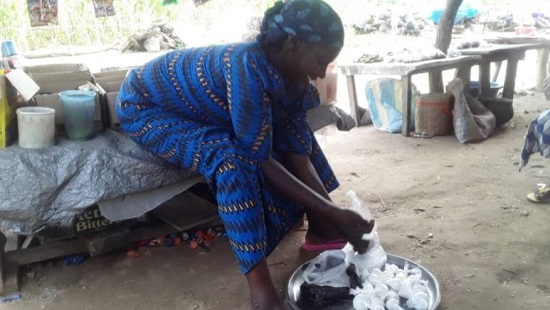
Emmanuel Shio, executive secretary of SEMA, confirmed the rate of sexual abuse among women and young girls in the camp but said the organisation is working with security agencies to protect every displaced person under their watch.
“Baka is a non-official camp; it is difficult to monitor the happenings in the camp on a daily basis except for food distribution. But SEMA is in partnership with domestic NGOs to monitor the cases of sexual harassment. We promise that no one accused of sexual harassment, be it staff or soldiers, will go scot free. The law will take its course,” he said.
AN ENDLESS WAIT TO RETURN HOME
In the past, IDPs made efforts to see if the government will ensure their resettlement to their original homes. The resurgence of attacks has dashed these hopes and aspirations. When asked about the possibility of resettling them in their homes, Shio said: “The idea was to keep them in camp for a short period of time, but it is important to look at the course of displacement and because the herders are still lurking around communities, it is difficult for the Benue state government to think of resettling them at the moment.”
Violence has had a far-reaching humanitarian and economic impact in Benue state and has created a huge effect of security problems, thus increasing herders-farmers conflict in the region and beyond.
There are over 10,000 Cameroonian refugees in Kwande local government area which the Benue government through SEMA and other domestic NGOs are supporting, according to Shio.
It is now an endless wait; in despair and toiling, they make ends meet and the gradual withdrawal of troops is not helping matters either.
Bushrah Balogun, gender and social activist, said women in the IDP camps do not feel safe, and they are being exploited for the sake of basic supplies.
“All the camps should be adequately protected, both the official and non-official camps and women should be considered on all mechanisms including leadership positions in the IDP camp. This will help in curbing gender irregularities and exploitations,” she said. “All staff or managers of the IDP should be interrogated and checked from time to time because some of the staff and community members may be the perpetrators of sexual exploitation.”
“Everyone in the camp deserves psychosocial and social support, especially women who have seen gruesome murder of their spouses and children. Trauma plays a long term effect and can’t be undone over a period of time without actual psychological interventions,” she explained, adding that food supplies by government and civil society organisations will not be there forever, therefore it is important to empower these women with skills that will sustain them and provide their basic needs.
Ene Obi of ActionAid Nigeria, asked the government to prioritise female security personnel in the camps and when there is any form of violation, the perpetrators should be held accountable, irrespective of position, identity or gender. She specified that where there is a crisis, the affected local government should be charged with the responsibility of the camps.
This story was published with permission from PREMIUM TIMES
Add a comment
